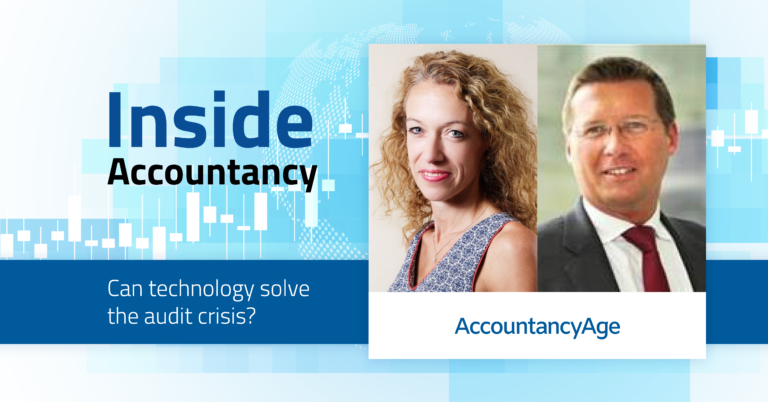Can technology solve the audit crisis? Key takeaways from our latest podcast
Read the key points from our latest thought-provoking podcast with Deloitte’s Katie Canell and Simon Cleveland.
Read the key points from our latest thought-provoking podcast with Deloitte’s Katie Canell and Simon Cleveland.

In last week’s podcast, Simon Cleveland, UK Public Policy and Regulatory Lead at Deloitte and Katie Canell, Managing Director, UK Audit Innovation at Deloitte, spoke about the role technology needs to play in solving the audit crisis.
Here are some key points from the podcast, where Cleveland and Canell discussed a range of issues, including new technology developments and the Brydon review.
To listen to the full podcast, click the player above.
“The more data and technology you put in a business, the more complexity you’re bringing. The way data flows through a system, the more data lakes that clients begin to build up,” said Cleveland. “And that of course, creates some real interesting challenges for us from an audit point of view.
“No longer have we got bits of paper that we can tick back from system to an invoice. We’ve actually got to work through some quite complex system architecture, to confirm that that information flow is both complete and accurate, but also we’ve got to sift through a lot of that data to try and understand what exactly do we need to look at to complete our audit,” he added.
“There’s a real challenge that unless you really understand your data that you’re putting in then that machine learning mechanism escalates the risk of bias that might be inherent within that input data,” said Canell. “And very, very quickly at scale, you reach a scenario where actually your output is quite significantly biased. And as a company, as management, as an auditor, you need to be really alert to that risk and make sure you’ve got controls in place to mitigate that risk.”
“Data extraction capability, the ability to pull data from across really disparate systems [is key],” said Canell.
“So being system agnostic and be able to pull data from financial systems, from other operating systems, that might be structured data, but it could be unstructured data as well. And to be able to pull that, and then to be able to standardize that, to be able to then apply some advanced analytics and tools on top of that is a really significant step,” she added.
“As companies are more able to use technology to describe their business, with more forward–looking risks and opportunities, being able to scenario model those using data and technology, then clearly there’s an opportunity for the audit product to evolve with that as well,” said Cleveland.
“I think it will be really interesting to see where Sir Donald Brydon goes with his review. I think the product review is really fundamental, really welcome. And technology will play a key part in how both companies and auditors are able to work to give more confidence back to the market and the general public, in business models and the numbers that businesses are talking about are fair,” he added.